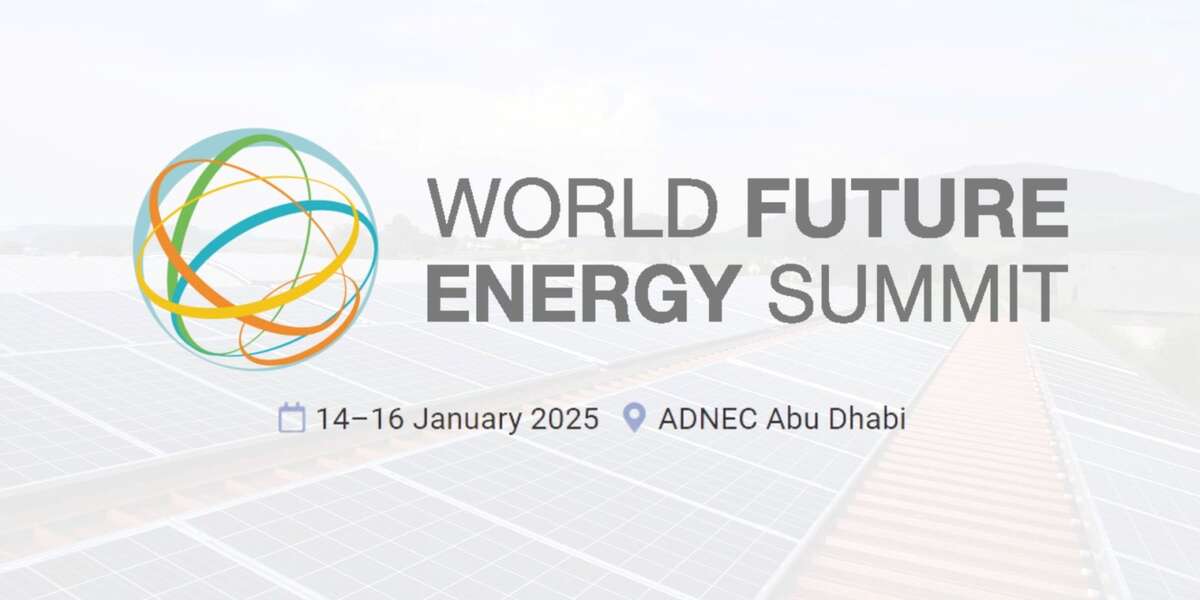The World Future Energy Summit 2025 has officially commenced in Abu Dhabi, running from January 14 to 16, as part of the Abu Dhabi Sustainability Week. This year’s summit is particularly significant as it focuses on addressing critical water security challenges in arid regions, with a strong emphasis on insights applicable to Sub-Saharan Africa. The event brings together global leaders, innovators, and policymakers to explore pioneering solutions for sustainable water management and development.
Addressing Water Scarcity
Sub-Saharan Africa faces severe water scarcity exacerbated by climate change and rapid population growth. Vulnerable communities are increasingly at risk from prolonged droughts, erratic rainfall, and inadequate infrastructure. According to the UN Environment Programme, approximately 30% of global water waste results from leaks in distribution systems, while only 11% of treated wastewater is reused. These statistics underline the urgent need for innovative approaches to water management.
The summit’s Water Conference aims to tackle these issues head-on. Organizations like the African Coalition of Communities Responsive to Climate Change (ACCRCC) are using this platform to advocate for tailored solutions that address the unique needs of their regions. Henry Opondo, Advocacy Advisor at ACCRCC, emphasized the necessity for urgent attention to water infrastructure and management in climate-vulnerable communities. He stated, “Through collaboration among governments, researchers, and industries, we can tailor scalable solutions to meet the growing needs of regions facing severe water stress.”
HAVE YOU READ? Why South Africa Needs Nuclear Power Plants More Than Shopping Malls Right Now
Innovations on Display
The summit showcases various innovative methods for reusing treated wastewater, such as recharging groundwater aquifers and producing biogas through waste-to-energy technologies. These approaches not only enhance access to water but also create new revenue streams and foster innovation in resource-scarce regions. For Sub-Saharan Africa, advancements in desalination, wastewater reuse, and smart water technologies could transform how communities manage their water resources.
One of the key highlights is the integration of artificial intelligence (AI) into water management practices. AI-driven tools enable real-time monitoring and predictive modeling that can optimize water distribution and reduce leakage. Dawoud, a technology expert at the summit, noted that these advancements support resilience against climate impacts while ensuring sustainable development for vulnerable communities.
Economic Impact
The implications of these innovations extend beyond environmental sustainability; they significantly affect local economies and industries. By improving water management systems, communities can enhance agricultural productivity through efficient irrigation practices. This is crucial for food security in regions where agriculture is a primary livelihood.
Moreover, public-private partnerships (PPPs) are being explored as a means to drive sustainable innovations in water management. These collaborations can lead to investments in advanced technologies that not only improve infrastructure but also create job opportunities within local economies.
HAVE YOU READ? How and Why Dangote’s New Plant Will Lower Petrol Costs for Nigerians
Global Collaboration
The World Future Energy Summit serves as a hub for collaboration among diverse stakeholders committed to overcoming global challenges related to energy and water security. Leen AlSebai, General Manager of RX Middle East and Head of the Summit, highlighted its global significance: “The Summit is a hub for renewable energy and sustainable solutions, addressing critical issues like water security while ensuring that no region or community is left behind.”
As the summit progresses, discussions will continue on how lessons learned from the MENA region can inform scalable strategies for Sub-Saharan Africa. By fostering international cooperation and sharing best practices, the summit aims to empower vulnerable communities with the tools needed to adapt to changing climatic conditions effectively.
In conclusion, the World Future Energy Summit 2025 not only addresses pressing water security challenges but also emphasizes the importance of innovative solutions that enhance resilience and sustainability for both people and industries across arid regions.








